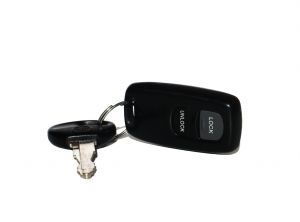The determination of who owns a vehicle and/or who has permission to drive it is a key in the wake of a crash.

Answers to those questions will help your attorney figure out which insurance claims to pursue and what kind of coverage to which you may be entitled.
Often, the answers to these questions are relatively easy. Other times, they can be far more complex. An example of the latter was seen recently in the Indiana Court of Appeals case of Auto-Owners Insurance Company v. Foster.
Although this is an out-of-state case, our Fort Lauderdale car accident attorneys know many of the same insurance laws are applicable here in Florida (despite the fact that we are a no-fault state and Indiana is a comparative fault state).
The underlying facts giving rise to the claim started in 2009. That’s when a teen driver operating a Honda Accord struck and seriously injured a bicyclist.
This is where it gets complicated. A month earlier, the teen executed a bill of sale for the car from a car dealership owned by his grandfather and where his father and uncle were employed. He took possession of the vehicle and was issued a temporary license plate. The purchase was completed through his father.
The father agreed to pay for the car from his employee account, and the teen (his son) would pay him back. At the time of the crash, the teen had paid his father little less than half of what he owed him. Additionally, when the crash happened, the teen had taken the vehicle without his father’s permission after the father took the keys as a disciplinary measure.
After the crash, the father took the car from his son and had the dealership sell it at an auction. The dealership retained the proceeds.
The dealership had an auto insurance policy that allowed for payment of damages for bodily injury or property damage for which an insured becomes legally responsible because it arises out of the use of an auto owned by (the dealership). The policy further indicated “insureds” would be considered dealership employees, garage customers and any other person operating the vehicles with permission.
After the injured cyclist filed a lawsuit against the teen, the dealership’s insurer sought declaratory judgment to assert it had no duty to defend or indemnify the teen pursuant to the policy or any separate Commercial General Liability policy. Trial court denied this motion.
On review a few months ago, the appellate court ruled summary judgment on the matter would be improper as there were genuine issues of material fact that existed regarding who owned the vehicle and if it was the dealership, whether the teen was a permissive driver. The case was remanded back to the trial court, where a bench trial resulted in a finding that the dealership owned the vehicle and the teen was a permissive driver operating the vehicle with implied permission.
The insurer appealed.
The appellate court weighed an extensive amount of evidence in the case, but ultimately found the title still belonged to the dealership, and it was the dealership that retained all proceeds from the sale. Regarding the permission to drive, it was revealed the teen (who lived with his father next door to the dealership) reportedly “borrowed” numerous vehicles from the lot. Although he was disciplined by his father for these actions, the dealership knew about what occurred and never made a police report or any attempt to lock the keys away from the teen. Thus, the court found, the permission to operate the vehicle was implied.
Because motor vehicles are often shared between family members, determinations of ownership and permission must be weighed carefully with an experienced injury lawyer.
Call Fort Lauderdale Injury Attorney Richard Ansara at (954) 761-4011. Serving Broward, Miami-Dade and Palm Beach counties.
Additional Resources:
Auto-Owners Insurance Company v. Foster, Oct. 29, 2014, Indiana Court of
More Blog Entries:
Bufkin v. Felipe’s – Pedestrian Injury Claim Countered by Open Obvious Doctrine, Oct. 20, 2014, Fort Lauderdale Car Accident Lawyer Blog
